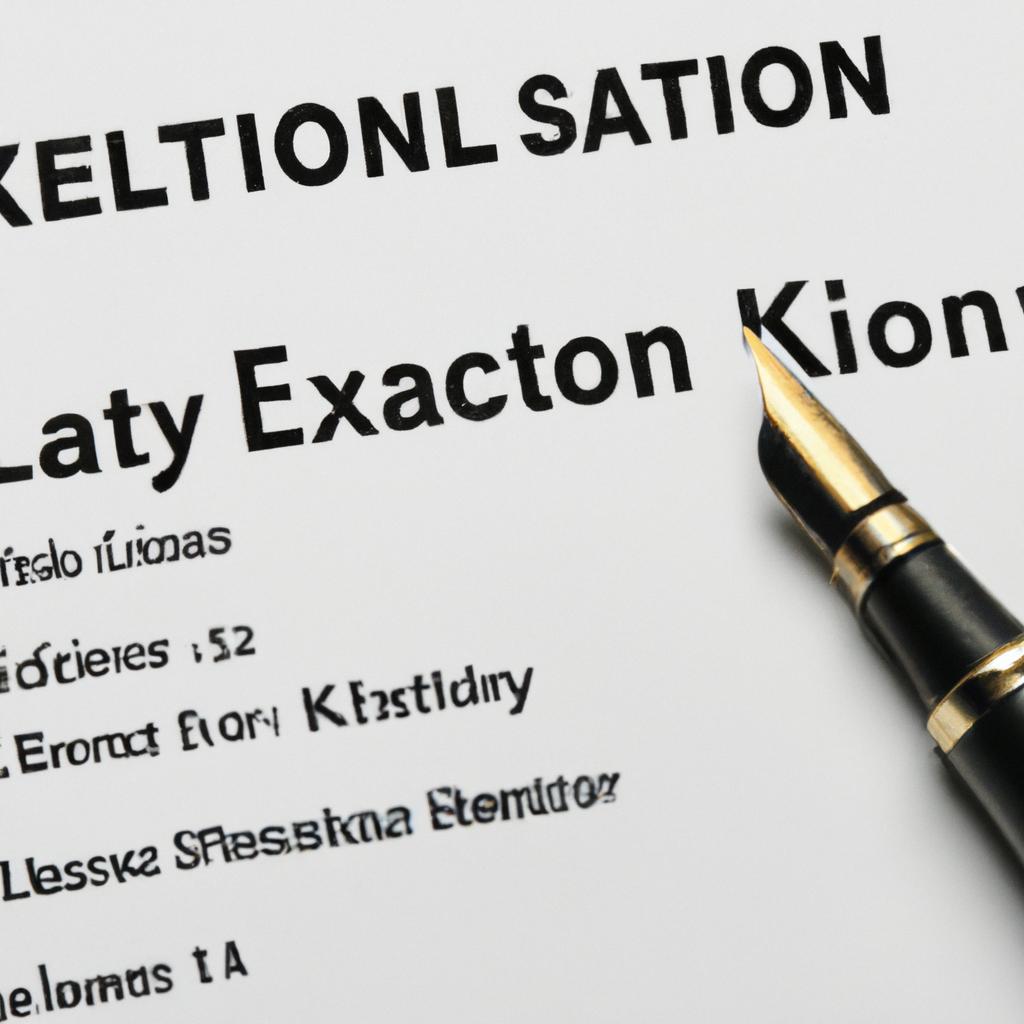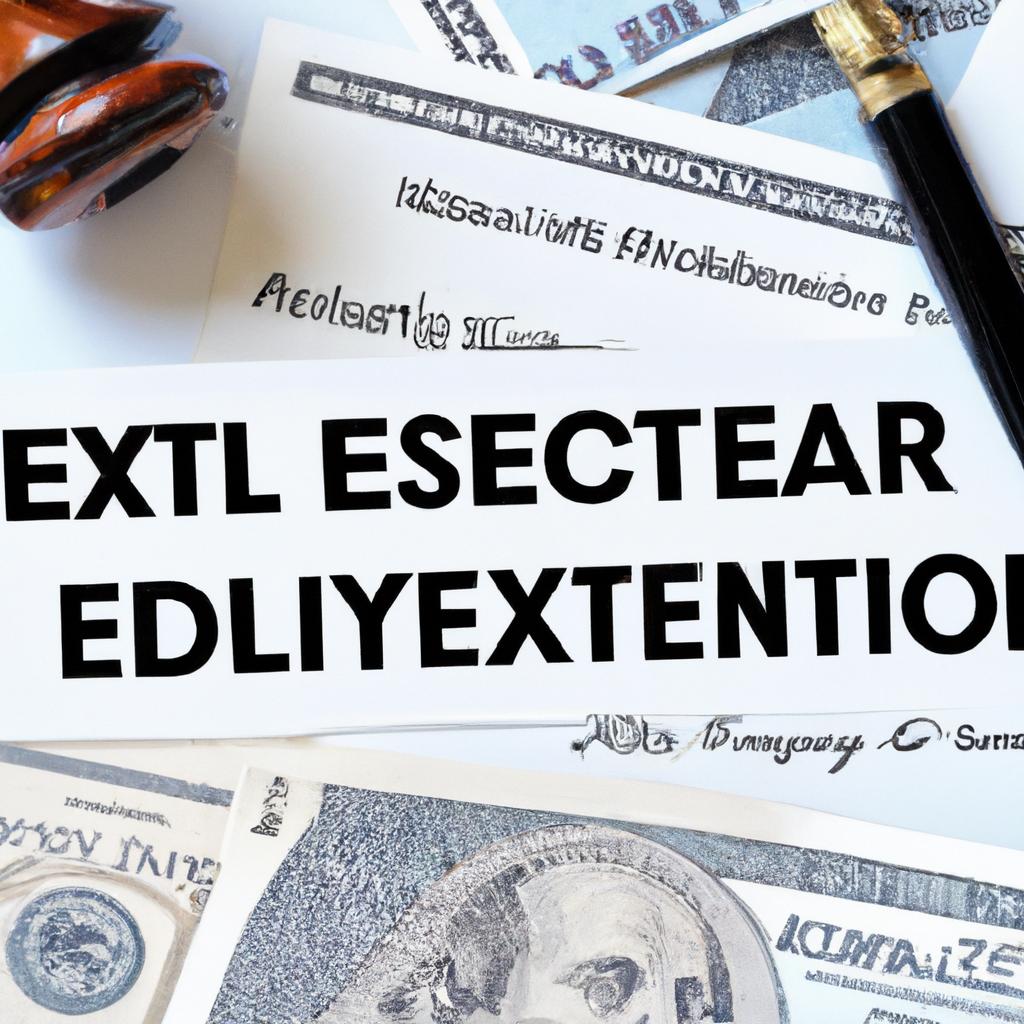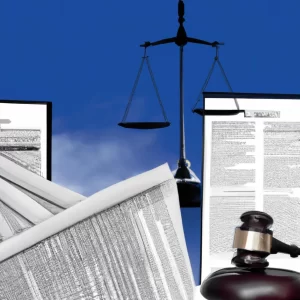In the intricate labyrinth of estate administration, time is both a friend and a foe. As seasoned legal navigators at Morgan Legal Group in New York City, we understand the weight of the question looming over many executors: how long does one have to settle an estate in the bustling metropolis of NYC? In this article, we delve into the nuanced realm of estate settlement timelines in the Big Apple, providing clarity and guidance for those tasked with the solemn duty of executing a loved one’s final wishes. estate settlement timelines”>
estate settlement timelines”>
Key considerations for executors in NYC estate settlement timelines
To effectively settle an estate in NYC, executors must adhere to specific timelines and considerations in order to ensure a smooth and efficient process. One key consideration for executors is understanding the statutory deadlines set forth by New York law for estate settlement. These deadlines dictate the timeframe within which certain tasks must be completed, such as filing the will with the Surrogate’s Court and submitting an inventory of the decedent’s assets.
In addition to meeting statutory deadlines, executors must also consider the complexity of the estate and any potential challenges that may arise during the settlement process. This includes determining the validity of the will, resolving disputes among beneficiaries, and managing the distribution of assets. Effective communication with beneficiaries and legal counsel is essential in navigating these challenges and ensuring the estate settlement is completed in a timely manner.
Challenges faced by executors in expediting estate settlements in NYC
One of the biggest is dealing with the complex legal processes involved. Executors are responsible for carrying out the wishes outlined in the deceased person’s Will, which oftentimes requires navigating through a maze of legal requirements and documentation. From filing the Will with the Surrogate’s Court to obtaining letters testamentary, the executor must ensure that all legal steps are followed to avoid delays in the estate settlement.
Another challenge that executors face is coordinating with multiple parties involved in the estate settlement process. This includes communicating with beneficiaries, creditors, and other interested parties to distribute assets, pay off debts, and resolve any disputes that may arise. Executors must also manage the estate’s finances, including paying estate taxes and other outstanding bills. Balancing these responsibilities while adhering to strict timelines can be daunting, especially for executors who may not have prior experience with estate settlements.

Factors influencing the timeframe for estate settlement in NYC
Factors that can influence the timeframe for estate settlement in NYC include the complexity of the estate, the presence of disputes among beneficiaries or creditors, the efficiency of the executor, and any potential challenges to the validity of the will. Each of these factors can significantly impact the overall process and determine how long it will take to settle the estate.
It is important to note that there is no set timeframe for estate settlement in NYC. However, the executor is generally expected to complete the process within a reasonable time frame, typically within one to three years. Delays can occur if the estate is particularly complex or if there are disputes that need to be resolved. Ultimately, the goal of the executor is to efficiently distribute the assets of the estate to the rightful beneficiaries in accordance with the wishes of the deceased.
Recommended strategies for prompt and efficient estate settlement in NYC
When it comes to settling an estate in NYC, time is of the essence. Executors have a specific timeframe within which they must complete the estate settlement process. Failure to adhere to these time constraints can result in legal consequences and delays in distributing assets to beneficiaries.
To ensure prompt and efficient estate settlement in NYC, consider the following recommended strategies:
- Stay organized: Keep detailed records of all estate assets, debts, and transactions.
- Consult with an experienced estate attorney: Seeking legal guidance can help navigate the complexities of the probate process and ensure compliance with New York state laws.
- Communicate with beneficiaries: Keeping beneficiaries informed throughout the estate settlement process can help prevent misunderstandings and disputes.
Q&A
Q: How long does an executor have to settle an estate in NYC?
A: The amount of time an executor has to settle an estate in NYC can vary depending on the complexity of the estate and any unforeseen challenges that may arise.
Q: What is the average timeline for settling an estate in NYC?
A: On average, it can take anywhere from six months to two years to settle an estate in NYC.
Q: Are there any factors that can impact the timeline for settling an estate?
A: Yes, factors such as disputes among beneficiaries, complicated assets, tax issues, and outstanding debts can all contribute to a longer timeline for settling an estate.
Q: Can an executor request an extension to settle an estate?
A: Executors can request an extension to settle an estate if they can demonstrate a valid reason for needing more time.
Q: What are the consequences of not settling an estate in a timely manner?
A: Failure to settle an estate in a timely manner can result in legal repercussions, including potential fines or removal of the executor from their role.
Q: What steps can an executor take to expedite the process of settling an estate?
A: Executors can expedite the process by staying organized, communicating effectively with beneficiaries, and seeking guidance from legal and financial professionals when needed.
To Wrap It Up
In conclusion, the role of an executor in settling an estate in NYC is a complex and time-consuming process that can vary in duration depending on several factors. While there is no set timeline in place, it is important for executors to diligently carry out their duties and ensure that all assets are properly distributed to beneficiaries. By seeking guidance from legal professionals and staying organized throughout the process, executors can navigate the estate settlement period with confidence and efficiency. As always, it is recommended to consult with a legal professional for personalized advice on estate administration matters in New York City.
 How Long Does an Executor Have to Settle an Estate in NYC?
How Long Does an Executor Have to Settle an Estate in NYC?
Being named as the executor of an estate in New York City is a significant responsibility and one that comes with a timeline to settle the estate. The executor’s role is to oversee the distribution of the deceased’s assets and carry out their final wishes. This process may seem daunting, especially for those who have never been in this position before. One of the most common questions asked by executors is, “How long do I have to settle an estate in NYC?” In this article, we will go over the process of settling an estate in New York City and the timeline associated with it.
Understanding the Probate Process in NYC
Probate is the legal process of proving the validity of a will and distributing the assets of the deceased according to their wishes. It is a court-supervised procedure that involves various steps and can take significant time to complete. In New York City, the probate process has been streamlined to make it more efficient and accessible.
One of the first steps in the probate process is filing the decedent’s will with the Surrogate’s Court in the county where they resided. If the will is not filed within 30 days of the death, the court may appoint an administrator to manage the estate instead of the executor named in the will. It is important to note that the probate process is only necessary for estates valued at $50,000 or more.
Once the will is filed, the executor must notify all beneficiaries and potential heirs, as well as all known creditors of the decedent. This must be done within seven months of being appointed as the executor. The executor should also obtain a Tax ID number for the estate, which is different from the decedent’s social security number.
The next step in the probate process is to gather and value all of the decedent’s assets. This includes bank accounts, real estate, investments, personal property, and any other assets. The executor must also create an inventory of these assets and submit it to the court within six months of their appointment.
Timeline for Settling an Estate in NYC
The timeline for settling an estate in New York City can vary depending on the complexity of the estate and any potential delays that may arise. Here is a general timeline of the probate process in NYC:
1. Appointment of the executor: This usually happens within one month of filing the will with the Surrogate’s Court. If the appointed executor cannot fulfill their duties, a successor executor may need to be appointed, which can cause delays.
2. Notification of beneficiaries and creditors: As mentioned earlier, this should be done within seven months of being appointed as the executor.
3. Gathering and valuing assets: The executor has approximately six months from their appointment to complete this step. However, they can request an additional six months if needed.
4. Payment of estate taxes and debts: Before any assets can be distributed to beneficiaries, estate taxes and debts must be paid in full. This process can take several months, depending on the complexity of the estate.
5. Distribution of assets: After all taxes and debts have been paid, the assets can be distributed to the beneficiaries. This step can take anywhere from a few months to a year, depending on the size of the estate and the number of beneficiaries.
6. Final accounting and court approval: Once all assets have been distributed, the executor must file a final accounting with the court. It typically takes the court six months to review and approve this accounting, bringing the total timeline for settling an estate in NYC to approximately 18 months.
Practical Tips for Executors in NYC
The probate process in New York City can be complex and time-consuming, but there are some ways to streamline the process and avoid potential delays. Here are a few practical tips for executors to consider:
1. Seek legal advice: As an executor, it is essential to seek legal advice from an experienced estate planning attorney. They can guide you through the process and ensure that everything is done correctly and efficiently.
2. Keep meticulous records: It is crucial to keep accurate records of all transactions and communications related to the estate. This will help avoid disputes and make the entire process smoother.
3. Communicate with beneficiaries: It is essential to keep beneficiaries informed about the progress of the estate to avoid delays and potential conflicts.
4. Avoid personal conflicts of interest: As an executor, you have a fiduciary duty to act in the best interests of the estate and its beneficiaries. It is vital to avoid any conflicts of interest to maintain the integrity of the process.
Benefits of Hiring a Probate Attorney in NYC
Navigating the probate process on your own can be overwhelming and time-consuming. This is why many executors choose to hire a probate attorney to assist them. An experienced probate attorney can help expedite the process and ensure that everything is done correctly. They can also handle any potential conflicts or disputes that may arise, making the process smoother for everyone involved.
Conclusion
In New York City, executors have approximately 18 months to settle an estate, but several factors can influence the timeline. It is crucial for executors to stay organized and seek professional guidance to ensure that the process is carried out smoothly and efficiently. By following the timeline outlined in this article and seeking legal advice when needed, executors can fulfill their duties effectively and distribute the deceased’s assets according to their wishes.





